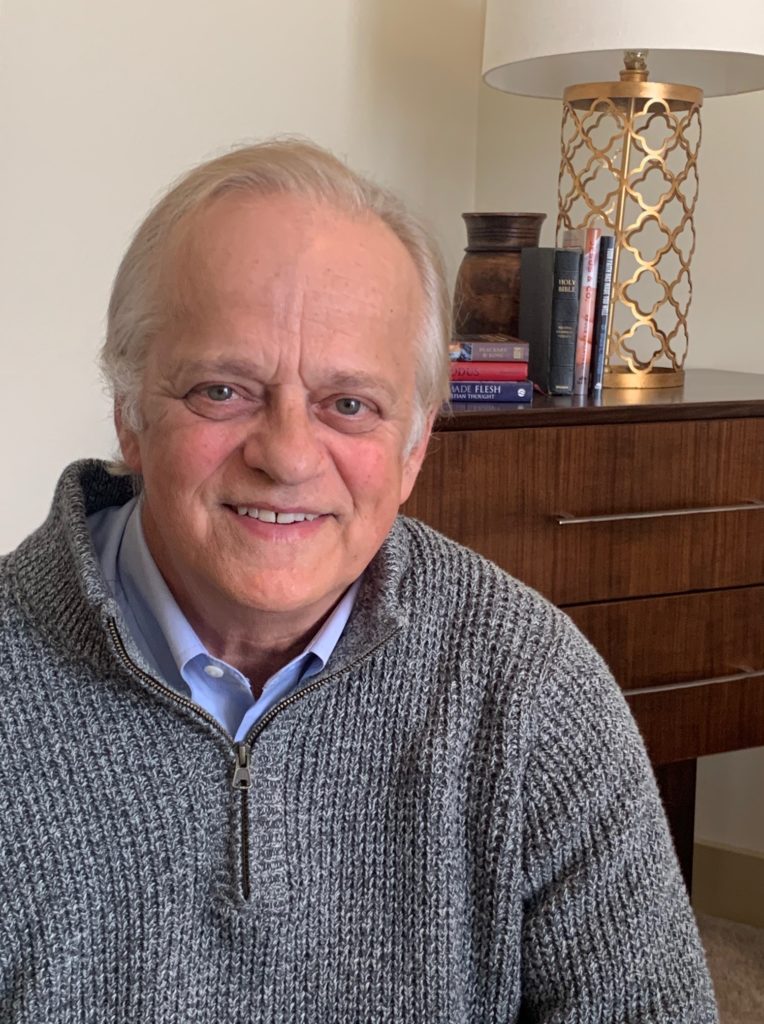The “Left Behind” novel series has given Christian fiction new respectability. Last year’s installment, “Desecration,” dethroned John Grisham from a seven-year reign at the top of best-seller lists. The 10th and latest volume, “The Remnant,” logged 2.4 million orders in the two months prior to its July 2 release.
But the novels have also renewed discussion of end-times theology. Theologians have a special discipline for interpreting what the Bible forecasts about the end of the world. It’s called “eschatology” — from a Greek word for last — literally, the “study of last things.”
As readers of the “Left Behind” novels know, lead author Tim LaHaye believes Christians will be taken from the earth in a “rapture” that precedes seven years of suffering. This is known as the “great tribulation,” for those who are left behind.
Author’s interpretation
Based on their reading of Bible prophecy — particularly the New Testament book of Revelation — LaHaye and co-author Jerry Jenkins predict that this period will include the rise of an Antichrist who will demand loyalty from all humans, including acceptance of an identifying “mark of the beast” on their hands or foreheads. A series of plagues and suffering will ensue until Jesus comes back to establish a 1,000-year reign on earth.
The “Left Behind” phenomenon has catapulted such discussion not only out of seminaries and into churches, but also into society at large. Only half of those reading the books are evangelicals, meaning a whole new audience is now grappling with similar questions.
Uncertainty since last Sept. 11 has only heightened doomsday fears. A recent Times/CNN poll found that 59 percent of Americans believe that prophecies in Revelation will come true. Nearly a fourth think the Bible predicted the terrorist attacks, specifically. Concerned about influence of the “Left Behind” series, Roman Catholic leaders recently endorsed a book aimed at clearing up “confusion” over teaching about the rapture.
Even some Southern Baptist professors who share many of LaHaye’s views say his imaginative fiction is no substitute for exacting scholarship when it comes to formulating an end-times view.
“It’s dangerous to take any of your theology out of a novel,” said Danny Akin, dean of the school of theology at Southern Baptist Theological Seminary in Louisville, Ky. “The ultimate authority is the Bible, but I don’t dissuade people from reading the books.”
Akin said he particularly encourages his students who hold different end-times views to read the books. “A well-informed minister should be reading the ‘Left Behind’ series, because his people are,” Akin said.
Akin said he subscribes to the books’ general theological viewpoint, but he quibbles with points at which he says the authors take liberties with the biblical text.
The series portrays locusts as stinging humans, which Akin considers a confused reading of Scripture. While these locusts do appear in Revelation 9, he said, a careful reading shows that the creatures spoken of are in fact demons released from the abyss.
“But let’s be fair,” Akin said. “The books are novels. These aren’t biblical, theological works.”
Fellow Southern Seminary professor Russell Moore agrees. Although he has read only excerpts, he said the novels shouldn’t be viewed as authoritative in the way they interpret Scripture.
The Antichrist plays a prominent role in the novels’ story line, but the Bible doesn’t give many specifics about the character other than to predict his existence, said Moore, a theology professor who recently moderated a seminary forum on Israel and the end times.
If people aren’t careful, they can get caught up in the kind of speculation Moore encountered as a teenager in his native Biloxi, Miss. A revival evangelist warned his congregation to avoid supermarkets that used price scanners, saying they could be linked to Revelation’s “mark of the beast.”
The problem with jumping on the bandwagon of any particular interpretation is that it undermines serious discussion of end-times issues, said Craig Blaising, executive vice president and provost at Southwestern Baptist Theological Seminary in Fort Worth, Texas.
“There’s a serious impoverishment of Christian life when that happens,” Blaising said. “Sometimes these things are made into a major matter of division and they shouldn’t be,” the theologian explained.
The Southern Baptist Convention’s Baptist Faith and Message statement doesn’t promote a particular end-times view, he noted, but it does affirm belief in Christ’s return and a bodily resurrection.
Blaising said preoccupation with the rapture often leads to faulty speculation on the date of Christ’s return — a practice Paul Boyer chronicled in his 1994 book, “When Time Shall Be No More.”
Blaising also said the novels’ major premise, that people without Christ are “left behind,” picks up on a trend since the 1970s to view the rapture as a “judgment” doctrine.
People’s greatest fear shouldn’t be missing the rapture, Blaising said, but spending eternity apart from God.
A Samford University research professor said he believes the earthly travails outlined in “Left Behind” aren’t going to happen at all. Professor Bill Hull said LaHaye’s interpretation is a minority view among theologians.
English evangelist John Nelson Darby, who led a series of campaigns in the United States beginning in the 1860s, is credited with formulating the theological system called “dispensationalism.” It gained popularity with the publication of the influential Scofield Reference Bible in 1909, with its extensive footnotes outlining Darby’s scheme.
Question of accuracy
Hull, one-time dean of Southern Seminary’s theology school, said he views the theology underpinning the “Left Behind” series as “a massive misunderstanding” of Scripture.
“I think [LaHaye] has misinterpreted the whole Bible,” he said. “It’s not what Jesus, Peter, Paul or John preached.”
Hull discounts LaHaye’s account of “a secret rapture where unbelievers don’t know why people have disappeared.” Revelation 1:7 says that when Christ returns, “Every eye shall see Him.”
“I’ve not found any of 10 Bible commentaries that interpret that verse the way LaHaye does,” Hull said.
Hull said LaHaye forms his theology by tying together unrelated passages and taking certain passages literally that could be intended as symbolism.
“I would say the Bible doesn’t have enough verses to dominate any particular view,” he said. “I believe the end times will be characterized by the triumph of Christ, that it is God’s purpose to redeem the world through Christ, and history will come to that conclusion.” (ABP)





Share with others: